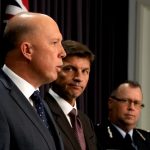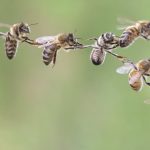Listening to other voices

With the polls trending heavily against the ‘Yes’ campaign, more thought must be given to what happens if the Voice Referendum fails to pass in October. Hopefully Australia will become one nation under a single national flag which holds all our people equal.
Perhaps a progressive, truly caring Federal Government under Prime Minister Albanese will legislate a National Aboriginal Affairs Commission with extreme oversight powers and auditing mechanisms, unparalleled checks, and balances to account for programs and all spending.
Just maybe a future referendum should recognize aboriginal people as the first inhabitants of Australia, but enshrining a Bill of Rights would ensure equal rights and treatment for all Australians.
Funding
Aboriginal peoples will not have their remote community outcomes improved by a voice, radical activists, nor our Federal Aboriginal Ministers and elected Politicians. Instead, all future Aboriginal funding programs to close the gap for mainstream Aboriginal peoples should be administered by a Federal Aboriginal Commission.
If the aim is to improve health, housing, education, and employment outcomes, then the answers to solving these issues is already widely known.
Firstly, the $35 billion dollars allocated every year for aboriginal communities must be spent on actual coordinated coalface programs and properly accounted for. The current “Aboriginal Industry” must be eliminated, starting with curbing the State and Territory Governments which have continually diverted funds allocated by the Commonwealth via planning, administration, travel, and a whole host of other accounting scams to top up their consolidated revenues and fund administrative and political programs of their own.
Education
Federal Education programs for both aboriginal adults and children should be instituted, giving all aboriginal peoples the ability to read and write in English and have a basic understanding of the legal system and the law. Indeed, the education of adults in these communities should be incorporated into Australian law.
Children that are prevented, or encouraged not to attend school, should be seen as being subjected to child abuse, and those children should be given the support they need to pursue their education, including boarding school type care and schooling.
The controversy over the “stolen generations” in the past should not prevent children who are physically or educationally abused from being protected today.
Housing
Aboriginal people with a home on native title lands should be able to acquire freehold tenure, and like everyone else in Australia, finance, build and buy a house. The land must be freehold to allow aboriginal people borrow for a better home, and all social housing provided on native title lands should be available to rent or buy.
Youth
The cycle of “sit-down money” encouraging dependency in remote communities where job opportunities are extremely limited must end. Offering all young aboriginal men and women an opportunity to undertake a form of national service for two years would be a massive step toward that end, fostering a sense of individual pride and social responsibility as well as teaching teamwork and useful skills.
Health
All Australians in regional communities, remote regional communities and working properties have far poorer health outcomes than those massed in our few cities, but the combination of greater housing ownership and better education for adult aboriginal peoples in remote communities would see a huge improvement in health outcomes.
The chances of completely closing the health gap of Aboriginal peoples living in remote communities with the bulk of the population who live in major cites are slim, but this range of education programs and other schemes should see a steady significant improvement.
Crime
Although aboriginal peoples are overrepresented in terms of the prison population, aboriginal communities are the ones which suffer when crimes against property or domestic violence against women and children are perpetrated.
Aboriginals do not want to be jailed, any more than anyone else, but the rule of law exists to protect every citizen. Rather than soft-peddling the social problems which beset some communities, efforts to improve adult education and meaningful employment are the best way to reduce Aboriginal detention.
Despite a raft of recent news stories, Aboriginal peoples are actually underrepresented in terms of deaths in custody, but consideration of institutions for Aboriginal offenders sentenced to incarceration, with work and education programs attached, is worth pursuing.
Responsibility
The Federal Government channels a huge amount of tax revenue towards Aboriginal communities and issues every year and it is time for the Federal Government to take full responsibility for the Aboriginal peoples of Australia, rather than abrogate responsibility to State and Territory Governments that have failed for decade after decade to achieve results.
As part of this fundamental revamping of responsibilities, the royalties paid to Aboriginal native rights holders might also be funneled to a central pool to assist all aboriginal peoples, administered by that Federal Aboriginal Commission.
The likely failure of the Voice proposal should not provoke recrimination, nor end Australia’s efforts to improve the lot of its earliest inhabitants, but it should offer a catalyst for a fundamental reform of aboriginal provision, support and administration. The Voice was proposed as a way to remedy the failures of past attempts to improve the lot of Aboriginal people, and its failure to pass will not end those problems.

After serving in the Royal Australian Navy, Bob Ford ran charter and fishing vessels and wrote for fishing and boating publications until retiring in 2008. Married with three children and six grandsons, his hobbies include sailing and lawn bowls.











